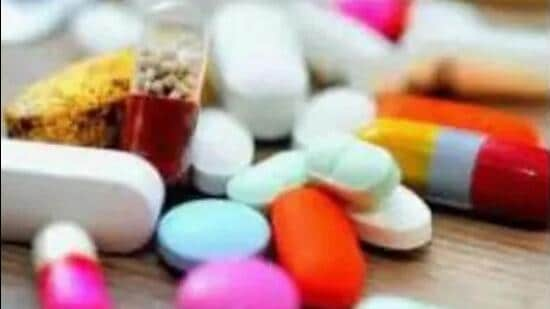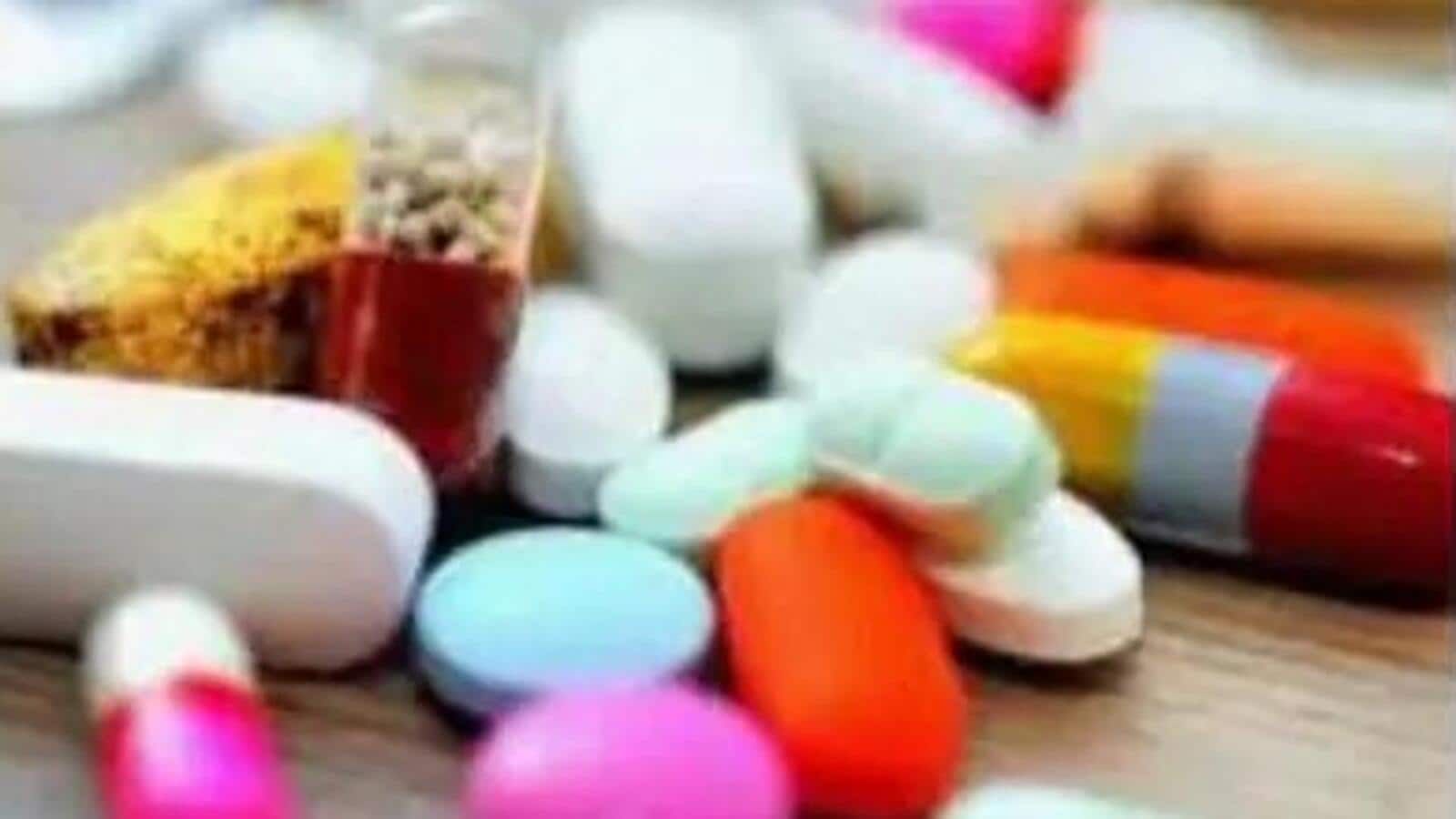New Delhi: In the back alleys of Delhi or inside a government-run Jan Aushadhi Kendras, a quiet drug crisis is unfolding. The substance in question isn’t heroin or cocaine — it’s Pregabalin, a prescription medication meant to treat anxiety, epilepsy, and nerve pain.
 Pregabalin, marketed under brand names such as Lyrica, Alzain, and Axalid, is meant to be dispensed only with a doctor’s prescription. (Representative photo)
Pregabalin, marketed under brand names such as Lyrica, Alzain, and Axalid, is meant to be dispensed only with a doctor’s prescription. (Representative photo)
But on Delhi’s streets, it has earned a far more sinister reputation: the “trance drug.”
“I used to take it just once a week for the high,” said a 28-year-old who began using Pregabalin recreationally after friends introduced him to its effects. “Soon I couldn’t stop. Now I take it almost every day. And I’ve never once been asked for a prescription.”
Pregabalin, marketed under brand names such as Lyrica, Alzain, and Axalid, is meant to be dispensed only with a doctor’s prescription. But it is being sold freely — and illegally — across the Capital. An HT investigation revealed that the drug is readily available without a prescription at multiple Jan Aushadhi Kendras and private pharmacies, despite being a scheduled drug that should only be dispensed with a doctor’s note.
At five Jan Aushadhi outlets — in Munirka, CR Park, Alaknanda, Govindpuri, and Zakir Bagh — HT was able to buy multiple dosages of the drug (75mg, 150mg, and 300mg) without so much as a question. Ten-tablet strips cost as little as ₹30 at these subsidised pharmacies, part of the Pradhan Mantri Bhartiya Janaushadhi Pariyojana (PMBJP), which is meant to offer affordable generic medicines to the public.
Also Read: Punjab bans sale of pregabalin beyond 75mg
In effect, the government’s own welfare infrastructure is now helping to fuel an emerging addiction crisis.
Officials from Delhi’s drug control department refused to comment officially. However, one senior official who spoke on the condition of anonymity acknowledged the issue but said the department had not received any formal complaints. “We are aware that Pregabalin misuse is a growing concern. Punjab, in particular, has faced serious abuse of this drug among young people,” the official said. “But since Pregabalin is not yet listed under Schedule H1, it becomes much harder to regulate its sale.”
The official confirmed that last year, the Punjab government formally wrote to the Centre requesting that Pregabalin be included in the H1 list of scheduled drugs — a classification that would require pharmacists to maintain sale records and dispense it only with a doctor’s prescription. The Centre is yet to act on that.
Seeking a high
At first glance, Pregabalin might not seem like an obvious choice for abuse. It was developed to treat nerve-related conditions and anxiety. But users say it also offers a relaxed, floaty “buzz” that has drawn comparisons to alcohol and Valium — without the hangover.
“I was told it’s like alcohol but cheaper, and you don’t get a hangover,” said a 23-year-old software engineer who began using Pregabalin in 2022. “I started with three pills. Eventually, I was taking more than a dozen a day.”
Now clean and out of rehab, he blames the easy access for fuelling his addiction. “Even when I realised I was addicted, the pills were still easy to buy. No one stopped me. If pharmacies had asked for a prescription, maybe I wouldn’t have spiralled so far.”
Many users said the addiction creeps up quietly.
Another user, 25, said the drug’s appeal lies in how subtle and slow the addiction can be. “It gave me a sense of confidence, a feeling that I could do anything. That’s what made it so dangerous. You don’t notice it taking over your life until it already has.”
No hurdles at pharmacies
Experts say the lack of regulatory oversight is at the heart of the problem. While Pregabalin is a scheduled drug under Schedule H — which technically requires a prescription — it is not on the stricter H1 list, which mandates record-keeping and tighter controls.
In Punjab, where the drug is locally nicknamed “ghoda (horse)” due to its veterinary use and tranquilising effects, has already been placed under tighter restrictions. Sale of 150mg and 300mg doses is no longer permitted without special authorisation in several districts.
But in Delhi, no such restrictions exist. HT was able to purchase multiple strips from both private and government pharmacies without any form of prescription or ID verification.
Also Read: 19 charge-sheeted for last year’s 1,200kg drug bust in Delhi
When contacted, the Delhi Chemists Association denied that pharmacies were selling Pregabalin illegally. However, interviews with pharmacists suggest otherwise. “It’s an open secret,” said one pharmacist in South Delhi, who admitted to selling the drug off the record. “We don’t give it to everyone — only to regular customers. As long as they don’t create trouble, it’s fine. We’ve been doing this for years.”
Left on dependency
Doctors at de-addiction centres across Delhi say they are now seeing a growing number of young adults – often between 16 and 35 – checking in for Pregabalin abuse.
“Some of the worst cases are taking up to 1,800 mg a day – that’s around 20 pills,” said Dr Shabiullah Sayyed, a psychologist at Rainbow Hospital.
“And the problem is they didn’t even think they were doing something dangerous at first. It’s not heroin. It’s not smack. It’s just a pill from a chemist.”
Another psychologist from the God’s Will Rehab Centre noted that the trend is similar to earlier waves of Tramadol or codeine syrup abuse. “There is an urgent need to address over-the-counter drug abuse, especially among youngsters. There should be stricter regulations and public awareness.”
Pregabalin is not currently listed under the Narcotic Drugs and Psychotropic Substances (NDPS) Act — which means there’s no legal penalty for possessing or distributing it.
Need for regulation
In September 2023, several district magistrates in Punjab imposed local restrictions on the sale of Pregabalin above 75mg and urged the Centre to bring the drug under Schedule H1. But no national-level action has followed.
Experts say the Centre must act immediately.“While the hospital has not yet received any additional case of Pregabalin but definitely, many patients who were prescribed the drug have shown the signs of dependency of the drug,” said Dr Rajinder K Dhamija, director of the Institute of Human Behaviour & Allied Sciences (IHBAS).
He added that unless the drug is reclassified under H1 and subject to NDPS-like control, the number of new addicts will continue to grow.
Also Read: ‘MANAS’ proves effective: Delhi registers 16 drug-related cases this year
But for those who have struggled with addiction, the drug’s easy availability remains a source of deep frustration – and sadness.
“I sometimes think my life could have been very different if the pharmacist had just said no,” said the software engineer, now clean after months in rehab.
“First few times being on it feels euphoric; soon it becomes a hell… Maybe if I needed a prescription, I wouldn’t have started. Or I’d have stopped sooner.”
He pauses.
“But no one ever asked.”

